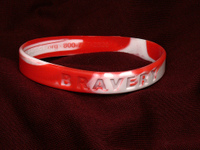|
|
 That’s what branding is all about. Walking away from business.
That’s what branding is all about. Walking away from business.
The wrong kinds of business. The wrong kinds of clients. The wrong kinds of growth.
When you brand the right way — you boldly proclaim what you stand for AND by default, what you don’t stand for.
I think that’s one of the reasons why so many companies either brand very superficially (our people are our difference or our quality sets us apart) or they don’t brand at all.
Business leaders and owners focus on the bottom line. I’ve got no argument with that. But many of them are unwilling to say "thanks, but no thanks" to business that’s a bad fit. Short term gain, for long term pain. Branded companies are specialists, not generalists. They don’t have to be. Their brand attracts the right kind of business. If they let it.
Every business has a sweet spot. An ideal client profile. Every time they connect with this kind of client, everyone wins. There’s success, profit and everyone feels good.
A good brand attracts your sweet spot kind of client. But you have to be willing to say no to the wrong ones, to make room for the right ones.
Are you brave enough?
Flickr photo courtesy of Splinter Group.

![Reblog this post [with Zemanta]](http://img.zemanta.com/reblog_e.png?x-id=fec4dd40-ea06-4b71-b268-fc650de5738c)